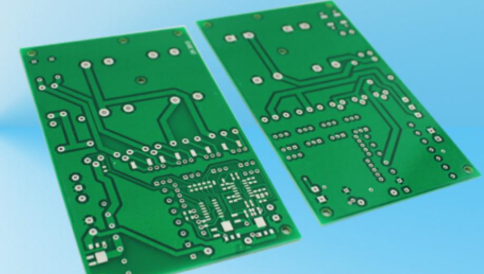Ensuring you reach build time is always the top priority for surface mount production. However, the challenge faced by many original equipment manufacturers (OEMs) is that the processes involving printed circuit board assemblies (PCBA) can be numerous and complex. Small details can make a big difference.
In this article, we will explore four core electronic component packaging issues that will help you simplify production, achieve your goals, and reduce costs.
1. Keep component changes to a minimum
When specifying the bill of materials (BOM), it is not uncommon for the design engineer to list several similar components in the same board reference. Although this optional element may be provided with better intentions, it may be a challenge because the size and shape of parts provided by different manufacturers may vary.
4 ways to improve PCBA production efficiency

Surface mount pick and place procedures are usually set up for a specific part. Any deviations that exceed the expected tolerances may cause the parts to be rejected and the production line to stop grinding. To maintain consistency, always ask your material supplier to arrange only one approved part-or at least, they should let you know about any possible changes so that your pick and place program can be updated offline and you can avoid any expensive machines Downtime.
2. Choose efficient packaging
The formats in which the devices are offered can vary greatly-especially in the area of integrated circuits (ICs). Typical IC packaging methods can include waffle trays, tubes and reels-each is usually distinguished by a specific letter or number at the end of the part number.
If your goal is to achieve better efficiency, then tape and winding parts are the recommended choices, because the use of tubular parts relies on the operator to replace parts at any time as the tube becomes empty, which may delay the manufacturing process. Of course, in some cases, it may not be feasible to request glued and wound parts, such as in the case of New Product Introduction (NPI), which is usually small in batch size. In these cases, it may not make commercial sense to buy a larger amount of equipment, so you can receive it in recording and reel format.
If you decide to change the parts from tube packaging to tape and reel, you also need to ensure that the sealing quality on the cover tape is adequate. Poor quality seals increase the risk of cover tape movement, which may mean that parts may be damaged or lost.
3. Avoid splicing components
Sometimes, it may be necessary to splice a smaller amount of tape and winding assembly together to form a larger continuous strip. But if this splicing is not performed well, the tape may get stuck in the surface mount machine. If the cover tape is pulled away from the carrier tape, you will be left with a stuck machine that needs to be resolved by the operator, resulting in costly downtime.
4. Plan things that are not always planned
Inherent in the manufacturing process is that things sometimes don't go as expected. If a surface mount machine is misplaced, dropped or damaged a component, and you don’t have more inventory of that component, you may have two difficult choices. You can choose to continue building with SMT and fit the part manually once it arrives, or you can stop working while ordering (and waiting) for a replacement part. The reality is that neither option is particularly ideal. Installing parts manually can affect quality, increase the risk of damage, and affect your delivery time. At the same time, choosing to stop working means that your machine is idle and costs you money.
Putting the wastage into your PCBA component kit may cost you a small amount in the first place, but it can save you hundreds of pounds in additional rework. Therefore, whenever possible, make sure that you require more of each component than you actually think. Small details can have a huge impact on the efficiency of PCBA production. By developing a procedure to continuously monitor and improve the process, you will be able to identify and eliminate things that don’t work, firmly grasp quality and increase profitability.